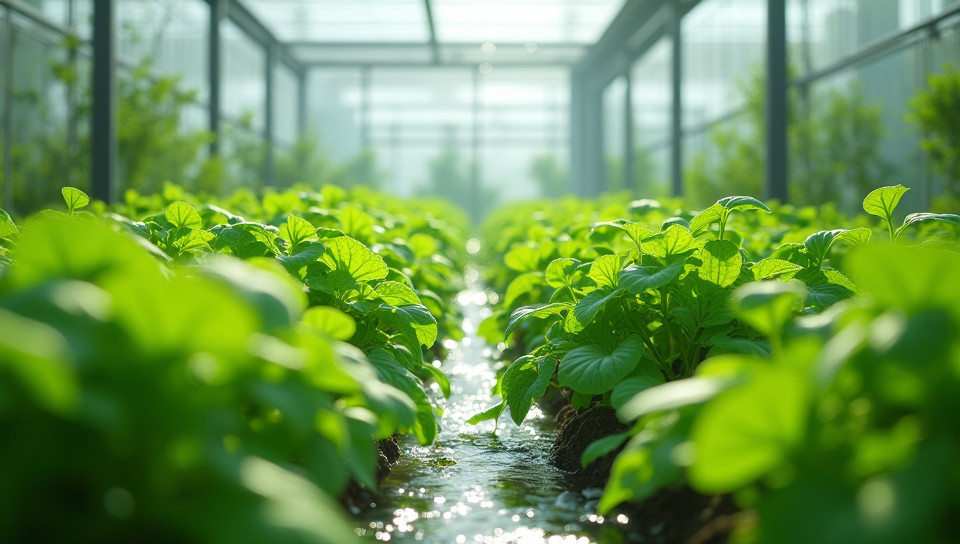Hydroponics reduces water consumption 92%

The Future of Sustainable Farming: How Hydroponics Reduces Water Consumption
As the world grapples with the challenges of climate change, water scarcity, and food security, innovative farming methods are gaining attention for their potential to address these pressing issues. One such method that's making waves is hydroponics – a soilless cultivation technique that allows plants to grow in nutrient-rich solutions rather than soil.
What is Hydroponics?
Hydroponics has been around for decades, but it's only recently gained popularity due to its numerous benefits. In essence, hydroponics involves growing plants in a controlled environment where their roots are suspended in a water-based solution that contains essential nutrients. This method allows for precise control over the nutrient delivery, pH levels, and temperature – resulting in healthier, faster-growing crops.
Advantages of Hydroponic Farming
Compared to traditional farming methods, hydroponics offers several advantages that make it an attractive option for farmers and consumers alike:
- Reduced water consumption: Hydroponics uses up to 90% less water than traditional farming methods
- Increased crop yields: Hydroponically grown crops can produce up to 30% more yield per acre compared to soil-based farming
- Reduced land usage: Hydroponic systems can be designed to grow multiple crops in a smaller area, reducing the need for arable land
- Improved crop quality: Hydroponics allows for precise control over nutrient delivery, resulting in healthier and more flavorful crops
Real-World Applications of Hydroponics
Hydroponics is not just limited to small-scale farming operations. Large-scale commercial farms are also adopting this method to improve efficiency, reduce costs, and increase yields.
For example, the city of Singapore has implemented a hydroponic system to grow over 30% of its leafy greens, reducing water consumption by up to 80%. Similarly, in the United States, companies like AeroFarms are using vertical hydroponic farming to produce a wide range of crops, from lettuce and kale to strawberries and herbs.
Conclusion
As the world continues to grapple with the challenges of sustainable food production, hydroponics is emerging as a game-changing solution. By reducing water consumption, increasing crop yields, and improving crop quality, hydroponics has the potential to revolutionize the way we grow our food. As consumers become increasingly aware of the environmental impact of their food choices, demand for hydroponically grown produce is likely to rise – making it an exciting time for farmers, entrepreneurs, and innovators in the agriculture sector.
- Created by: Leon Kaczmarek
- Created at: Feb. 1, 2025, 2:47 p.m.
- ID: 19862
